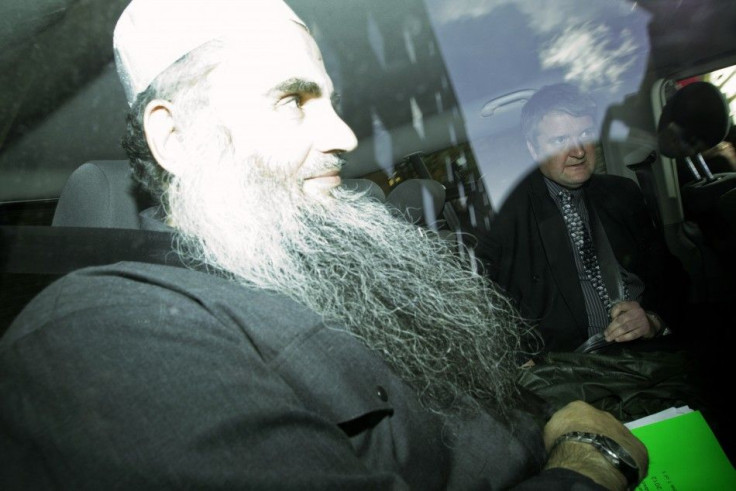Abu Qatada: 5 Facts About The Suspected Terrorist and His Deportation

On Tuesday, Abu Qatada was arrested by British authorities in advance of a planned deportation to Jordan. Britain sees Qatada as a threat to national security; he is accused of being a leading figure in European terrorist networks, and Jordan has convicted him of involvement in two 1998 bombings.
There are questions as to Qatada's history. His future, too, is far from certain. Deportation might still take time, said Home Secretary Theresa May to the House of Commons. The proper processes must be followed and the rule of law must take precedence -- but today Qatada has been arrested and the deportation process is under way.
Here are five key facts about Qatada to explain what he's done, where he's going, and when he might get there.
He has a history of activity in London.
Abu Qatada, 51, is a Palestinian-Jordanian whose real name is Omar Othman. He fled to the United Kingdom in 1993. Once accepted there as a refugee, Abu Qatada was an active figure who regularly preached and held meetings. British intelligence communicated with Qatada more than once during those early days, but it was not until 2001 that they questioned him, searched his home, and began to identify him as a threat to national security. It is while he was in Britain that Jordan convicted him on charges related to two bombings in 1998 and plots for further attacks to mark the new millennium.
He is allegedly linked to al Qaeda.
Qatada is an influential scholar and cleric whose ideas have been especially popular among Algerian and Egyptian armed Islamists, according to BBC. He has made statements condoning murder and suicide attacks in order to spread his extremist version of Islam. He has also been labeled as Osama bin Laden's right-hand man in Europe. Recently, an al-Qaeda-linked group in Somalia, al-Shabab, condemned Britain's efforts to extradite the suspected terrorist. But Abu Qatada has so far denied any affiliation with the terrorist network.
This is the end of a long road.
Britain has placed Qatada under house arrest several times since first seeking his deportation in 2001. Authorities hit a roadblock in January when, after a very long legal battle, the European Court of Human Rights ruled that Qatada could not be deported back to Jordan. They judged that his trial there would be unfair, since any conviction would likely be based on evidence gained from illegal torture. The tides turned following a series of negotiations between Britian and Jordan, resulting in Jordan's promise that Abu Qatada would have previous convictions overturned, and that a retrial would be held in public court.
Jordan must now release two suspected terrorists.
When Qatada was convicted in absentia of participating in the 1998 bombings, so were two other defendants. Their testimonies helped to convict the absent Qatada, but they later said that they were tortured to secure false testimony. As part of the deal negotiated recently between Britain and Jordan to appease the European Court of Human rights, Jordan must not only discard those defendants' testimonies -- they must also pardon and release the two alleged accomplices.
He won't be deported right away.
It's been a long legal battle to get Qatada out of the country, and there's still a waiting period ahead. The deportation notice says that he should be taken to Jordan on or around April 30, but Qatada can still challenge the ruling. His lawyer has said that Jordan's promises not to use illegal evidence cannot be trusted, and that Jordan has lied about releasing the two alleged accomplices in the 1998 bombing case. He plans to argue against the European Court's decision. This new battle could take months, prolonging Qatada's stay in Britain even further.
© Copyright IBTimes 2024. All rights reserved.












